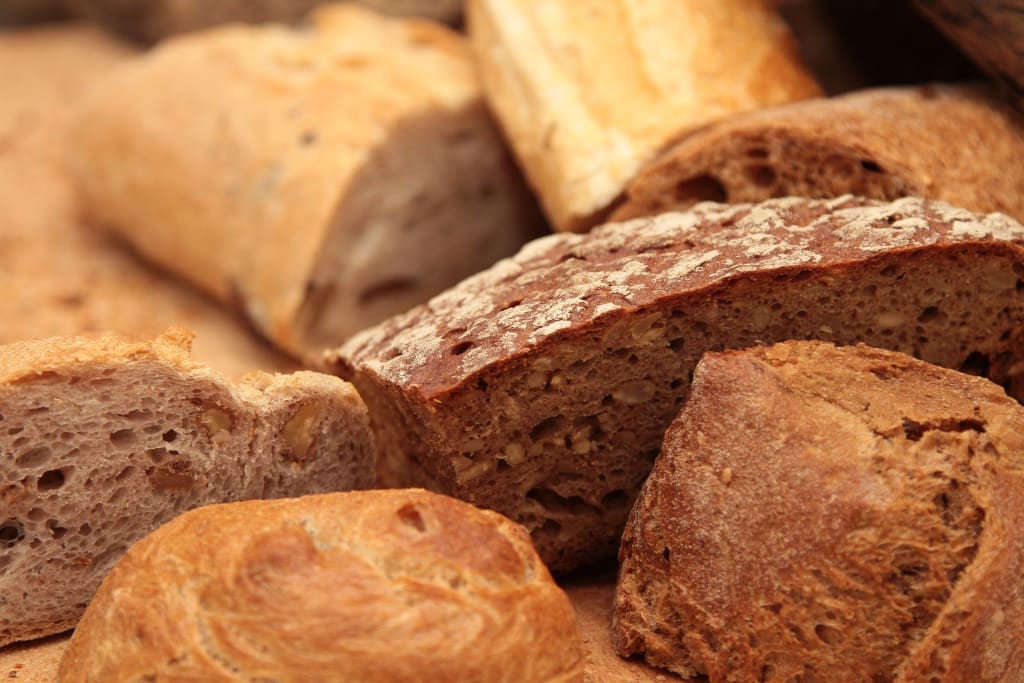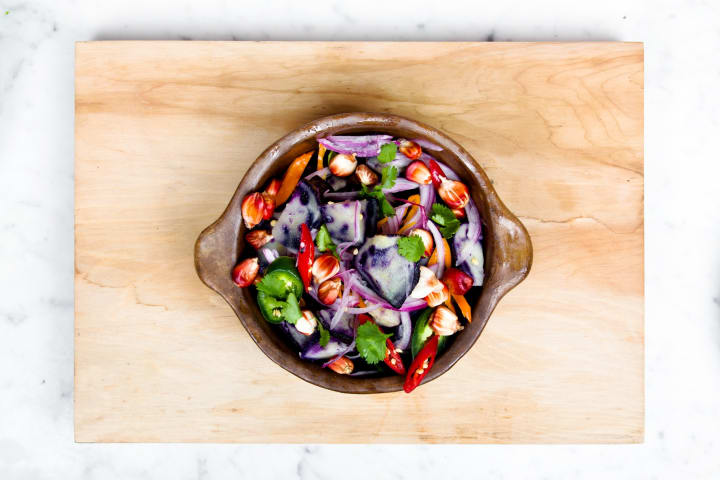Gluten Myths People Still Believe
Your self imposed deprivation of all things starchy may be causing you more trouble than it's worth.

For most people, a life without warm bread and starchy pasta is a kind of unimaginable hell. I harbor deep sympathies for those diagnosed with the three conditions that require strict avoidance of gluten (the proteins found in wheat, rye, and barley that give bread that heavenly elastic quality we’ve come to love). If you’re not one of those people who has been told my a certified health professional that gluten is slowly killing you from the inside out, but have instead chosen to jump on the gluten-free bandwagon by choice, I hate to break it to you, but your deprivation (probably) isn’t doing you any good.
Dr. Maureen Leonard, a clinical director at the center for Celiac Research and Treatment at MassGeneral Hospital for Children has said, “Unless you have celiac disease, non-celiac gluten sensitivity, or a wheat allergy, there’s no real reason to completely avoid gluten.” She doesn’t recommend that anyone avoid gluten on their own or make a self-diagnosis of celiac disease without seeing a gastroenterologist.
Still, the number of people entering into a torturous world without everything bagels, macaroni and cheese, focaccia, and multilayer lasagna because they’ve bought into dubious health claims about gluten-free diets, is growing.
I’m a big advocate for doing your own thing. So if you think eliminating a good 60% of an available food source because you believe it’ll help you shed a few inches or will somehow revitalize your insides, by all means, have at it! However, I’d also recommend reading up on any drastic health changes before diving in.
To help you with that, here are some of the biggest myths people believe about the protein that gives wheat its power.
Gluten-Free Diets Are Better for Everyone

With restaurants offering special menus, grocery stores devoting entire sections to foods free of rye, wheat, and barley, and celebrities boasting about how amazing they feel on a gluten-free diet, it’s easier and more tempting than ever to cut gluten from your plate. But should everyone do it?
No, say many doctors, including the aforementioned Dr. Leonard. “A gluten-free diet is not better for everyone. We have no evidence to suggest that everyone should eliminate gluten from their diet,” the doctor says. She maintains that only patients who’ve been diagnosed with celiac disease, non-celiac gluten sensitivity, or an allergy to wheat by a gastroenterologist should actually adopt this diet.
Doctors insist that the majority of individuals can eat gluten and not have any ill effects, but as always, all foods should be eaten in moderation.
Ditching Gluten = Losing Weight

Everyone from Victoria Beckham and Miley Cyrus to that annoying coworker in the next cubicle seems to believe that ditching gluten will lead to that body you’ve always wanted. But there's no current data supporting the idea that substituting gluten-free versions of pastas, pastries, and other carbs guarantee weight loss. The weight loss of those who have shed pounds on a gluten-free diet can usually be attributed to healthier substitutions of whole foods -- not the absence of gluten.
Doctors have noted that if you start a gluten-free diet and replace glutinous foods with lean meats, fruits, and veggies, it’s quite possible that you’ll lose weight. If you just replace your gluten-containing packaged and processed foods for gluten-free versions, it’s likely that you’ll gain weight. Since the gluten-free products don’t have gluten to make them stretchy and soft, they’ll often use extra fat, sugar, and flours that have less fiber to make them more caloric.
Humans Aren't Meant to Eat Gluten

Cavemen didn’t eat linguini, so our bodies definitely haven’t evolved to tolerate newer types of food, right? Well, yes and no. Gluten is made of amino acids that no one can completely digest, but that’s not cause for alarm.
In most cases, the immune system sees gluten and can eliminate it with no issues. For people with celiac disease, gluten is seen as foreign material and the body attacks itself. A normally functioning human body can break it down and get rid of it without causing health effects.
Tell the naysayers that gluten-free muffins didn’t exist in prehistoric times, either -- ditto for wagyu beef.
Science Proves That a Gluten-Free Diet Reduces the Pain of Endometriosis and Depression

The problem here is that running a few studies doesn’t “prove” or “conclusively show” anything. Good nutrition science depends on the long, slow accumulation of data over many, many studies — something scientists themselves know very well. They are (or should be) highly skeptical of single studies. Enthusiastic gurus who speak confidently on the dangers of grains are exaggerating the field — and exaggeration in science is nothing less than a lie.
Food is hard to study, and even more so are our bodies. Each of us is different and something that works for one of us might not be the solution for someone else. Diets, no matter what kind, are essentially restrictions of nutrients in an attempt to lose weight and/or become healthier. However, most diets are not held long enough to gain any real or lasting benefits, and the side effects more often interrupt any positive results that may eventually emerge.
If you're looking to reduce depression or the pain of endometriosis, there are plenty of other resources with proven results. Do your research and be smart.
Gluten-Free Foods Are Just Healthier

Fat-free, sugar-free, and now gluten-free: the misleading food-marketing strategies brands have adopted to convince people that their processed, packaged crap is actually healthy. In reality, many gluten-free foods are fattier, more caloric, and less nutritious than their traditional counterparts.
Gluten-free processed foods are not necessarily fortified with B vitamins and folic acids. They may contain less fiber. They also may contain more sugar and more calories, so they are not healthier for everyone.
A quick comparison of nutrition labels reveals all the facts; if you eat an entire box of gluten-free cookies because it's "healthier," you're only fooling yourself.
Everyone Should Try Giving up Gluten for a Week

Doctors are pretty unanimous in their reluctance to recommend “trying out” a gluten-free diet. Like many other fad diets, the cons tend to out way the pros, and specifically for a gluten-free diet, it’s not necessarily healthier for those who don’t actually need it. Giving up bread and hunting out gluten-free toothpaste, is simply following a fad.
There Is No Such Thing as Gluten Sensitivity

While doctors can test for wheat allergy and celiac disease, non-celiac gluten sensitivity is a trickier diagnosis, which has made some people question whether it exists at all. Dr. Leonard, though, says gluten sensitivity is indeed a real thing, and it’s only a matter of time before the medical community will find hard evidence for the condition.
“We certainly see patients in our clinics who feel ill and when we remove gluten from their diet, they are completely different,” she points out. “We do not have a very accurate way of making a diagnosis of gluten sensitivity except for ruling out celiac disease and wheat allergy as a cause of symptoms.”
Lesson Learned

About the Creator
Alysha DePerna
Book nerd and lover of all things cheese flavored. Highly skilled at Google and considers coffee medicinal.






Comments
There are no comments for this story
Be the first to respond and start the conversation.